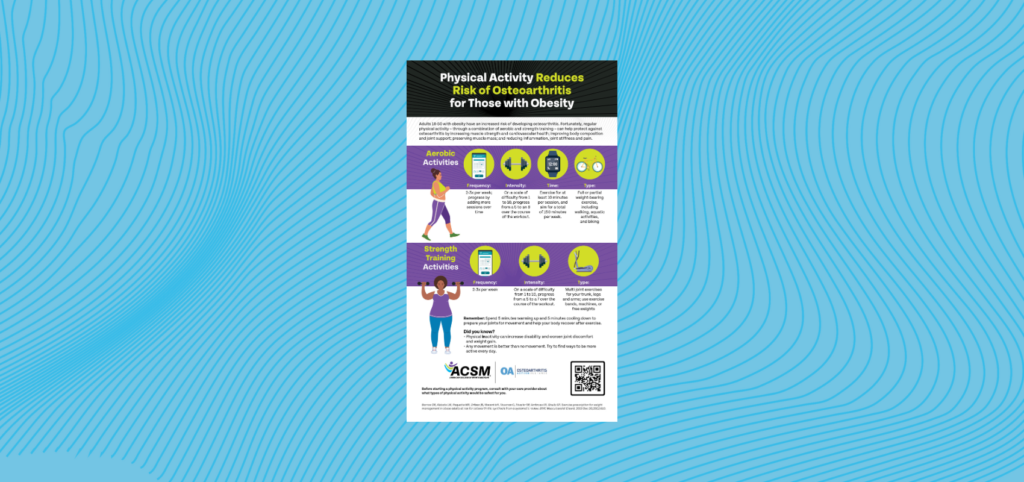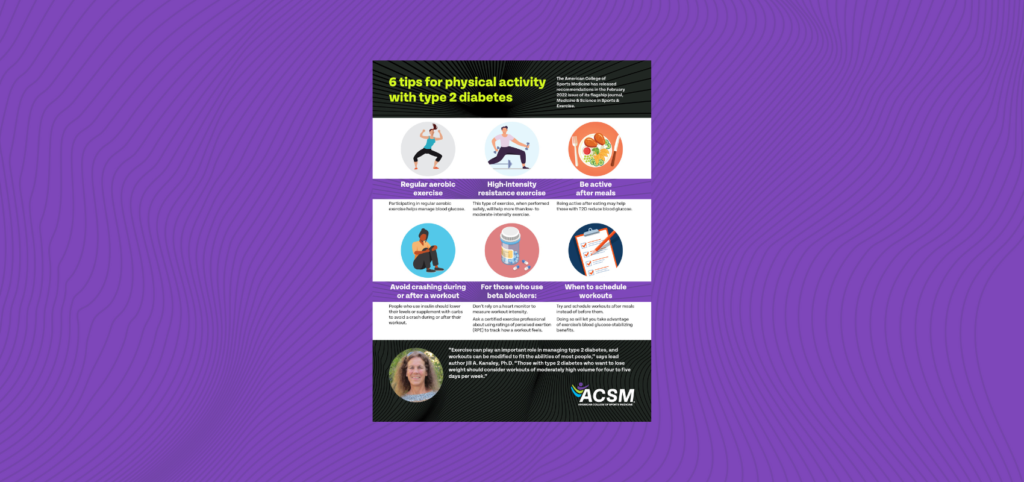Harnessing the Expertise of Exercise Professionals to Move the Needle on Blood Pressure Controlancer Treatment

High blood pressure (BP) or hypertension is the most common costly but modifiable major risk factor for the development of cardiovascular disease and premature mortality, affecting nearly half (47%) of the U.S. adult population. A recent scientific statement from the American Heart Association (AHA) reinforces physical activity as a critical component of first-line treatment for individuals with mild- to […]
Physical Activity Reduces Risk of Osteoarthritis for Those with Obesity

Regular physical activity can help protect against osteoarthritis by increasing muscle strength and cardiovascular health; improving body composition and joint support; preserving muscle mass; and reducing inflammation, joint stiffness and pain.
Technogym HIIT Applications in Chronic Disease Q&A

If you’d like to view the full webinar with an opportunity to earn one CEC, click here Q: Do you have any thoughts on HIIT’s effect on cancer survivorship versus MICT, or can you reference any researchers working in this area? A: I believe there are large trials in prostate cancer and breast cancer ongoing with […]
Overall Physical Activity or Intensity of Activity: Which Is More Important for Cardiometabolic Health?

Cardiometabolic risk describes a collection of factors known to increase the likelihood of cardiovascular disease. It includes lipid and glucose metabolism as well as adiposity and hypertension. We know that being more physically active is associated with lower cardiometabolic risk. However, it is not clear whether more specific or tailored physical activity guidance can be […]
Resistance Exercise Increases Gastrointestinal Symptoms, Markers of Gut Permeability, and Damage in Resistance-Trained Adults

Gastrointestinal (GI) discomfort can occur as an unfortunate byproduct of physical exercise. While this phenomenon has been thoroughly outlined in endurance athletes, only one study to date has measured and reported increased markers of GI injury following resistance exercise that coincided with decreased nutrient absorption. Grand View Market research estimates the global digestive health market will reach […]
Meeting the 50th Percentile for 24-hour Movement Helps Cognitive Function

Alzheimer’s disease and related dementias are debilitating conditions leading to impaired cognitive processes and worsening physical functioning. They place significant burden on caregivers and health care systems. Roughly 15 million cases of cognitive impairment and Alzheimer’s disease in the U.S. are projected by 2060. While there are no medical treatments to delay Alzheimer’s disease progression, […]
Air Pollution Diminishes the Benefits of Physical Activity for Brain Health

Physical activity is recognized as one of the key healthy lifestyle behaviors that reduces the risk of developing dementia late in life. Physical activity requires increased rates of respiration. Thus, in areas with high levels of air pollution, physical activity may increase exposure to particulate matter and gases that are linked with higher risk of […]
Exercise, Type 2 Diabetes and Communities of Color

ACSM’s February release of its new consensus statement on type 2 diabetes (T2D) and physical activity is timely for Black History Month 2022 — communities of color disproportionately bear the burden of overweight/obesity and diabetes, likely due in large part to social and environmental factors. For instance, we know that a reduction in physical education […]
ACSM Publishes New Recommendations on Type 2 Diabetes and Exercise

(Indianapolis)- Diabetes is a chronic disease that affects more than 463 million people worldwide, and type 2 diabetes accounts for 90-95% of all cases. Research in exercise science confirms that physical activity can help prevent type 2 diabetes, as well as help patients manage its effects. To assist consumers and exercise professionals in fighting type […]
6 Tips for Physical Activity with Type 2 Diabetes

Research in exercise science confirms that physical activity can help prevent type 2 diabetes, as well as help patients manage its effects.
